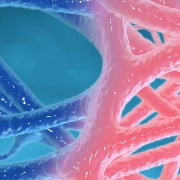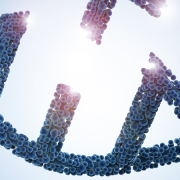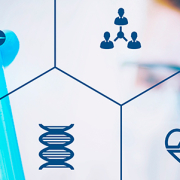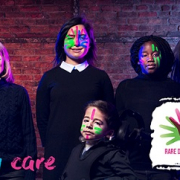Genomics in nursing: making a difference to patients
As part of this year’s #GenomicsConversation, guest author Leanne LeRiche shares her family’s experience of genomic testing, and the vital role that nurses play
I am a mother whose child has an undiagnosed genetic condition. For the past 10 years, my daughter has endured numerous investigations, tests and invasive procedures that have yielded little in terms of a diagnosis. Her condition is neurological and muscular at its core, with many systems affected. Something is very clearly wrong, but to this day my daughter remains undiagnosed, unknown. An incomplete medical puzzle.
Over the years, healthcare professionals have done their best to solve the puzzle with countless tests and procedures, to no avail. Exhausted mentally, emotionally and physically from our arduous diagnostic odyssey, my family became resigned to the belief that all we can do now is manage my daughter’s symptoms and optimise her quality of life. But we hoped. Because, when you’re faced with hope or despair as a coping mechanism, it has to be hope – every time.
Hope was sometimes hard to come by, however – until we were offered genomic testing.
What is genomics?
If genomics is an unfamiliar term to you – as it was for me – probably the easiest way to understand it is to think about genetics.
A routine test in genetics would be to look at a single gene, to see if there is an alteration in that gene’s DNA that has caused the patient’s condition. Sounds simple enough. But it can take several years, and a great many tests, to identify the right alteration in the right gene to confirm a diagnosis.
Genomics looks far beyond single genes, however. Advances in technology means it’s now possible to test multiple genes simultaneously; even the entire genome – all of a person’s DNA. And this is exactly what we were offered, through the 100,000 Genomes Project.
Beyond the science
The 100,000 Genomes Project and other projects like it aim to build up enough understanding of the genome to better diagnose, manage and potentially even prevent a huge range of health conditions. For families like ours, it can bring long-awaited answers where before there was none.
The science and technology of genomics doesn’t bring these answers alone, however. It goes hand-in-hand with clinical expertise. Typically, patients with an undiagnosed rare condition would be referred to the genetics department, with clinical geneticists and genetic counsellors taking the lead in their care.
But the expansion of genomics into mainstream healthcare is bringing many more patients and their families into contact with genomics. This means a much wider range of healthcare professionals need knowledge and skills in genomics in order to support these families – and to help translate genomic advances into better patient outcomes.
The vital role of nurses
Nurses are central to the public’s health, whether delivering screening programmes, annual health checks, or simply the numerous points of contact they have with patients during their lifetime. And, when it comes to genomics, nurses have an important part to play in supporting patients and families through the testing process.
This is because, while the potential of genomic technologies is huge, no amount of technology can take the place of an empathetic nurse. Nurses empower patients to express their concerns relating to their healthcare – we trust them with our feelings and fears. And, in situations like ours, when there are so many unanswered questions and still so many gaps in knowledge, trust is vital.
Of course, underpinning nurses’ soft skills are a raft of clinical competences, and there is no doubt a need for supporting information, education and training, to ensure nurses feel equipped to support patients through their genomic testing.
It’s also important to remember that a genomic test may not just affect the patient: the impact can be felt across the family, potentially affecting reproductive decisions and putting family dynamics under pressure. Another reason why healthcare professionals need the clinical knowledge, skills, insight and empathy to help patients feel comfortable when deciding whether to give their consent for genomic testing, and to cope with whatever results come back.
Our journey
For us, the result from the 100,000 Genomes Project has so far been negative: this means they haven’t yet found an alteration in my daughter’s DNA that is definitively the cause of her condition.
However, there are still positives that families like us can draw from a negative result: for example, ruling out tests and procedures that may have otherwise been attempted. And, because research continues through the 100,000 Genomes Project and the new NHS Genomic Medicine Service, knowledge of the genome and its impact on health will only grow.
Which brings us back to hope. Genomics gives us hope that our healthcare team will, one day, have the knowledge to say: yes, we know what is causing this. We know what this is.
Making the leap
To sum things up from a patient’s perspective, genomics is a hugely exciting breakthrough in healthcare, with the potential to bring an end to the diagnostic odyssey; where a simple blood sample could replace many frustrating years of invasive tests and grueling procedures.
There is no guarantee of a result, however – for many of us, we are taking a leap into the unknown. But one thing is certain: nurses, we can’t do it without you.
Leanne LeRiche is a rare disease advocate and a member of the 100,000 Genomes Project participant panel
–









